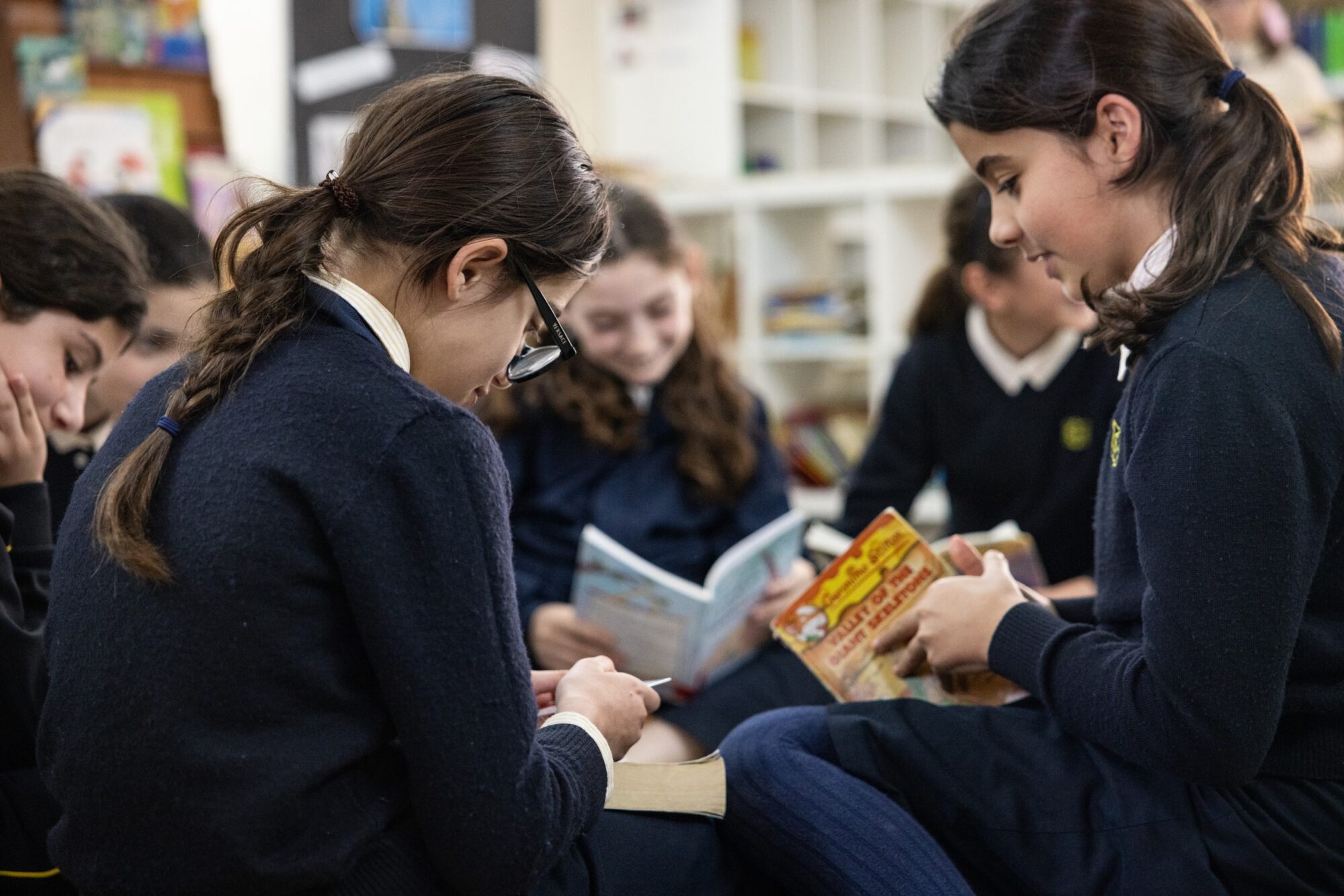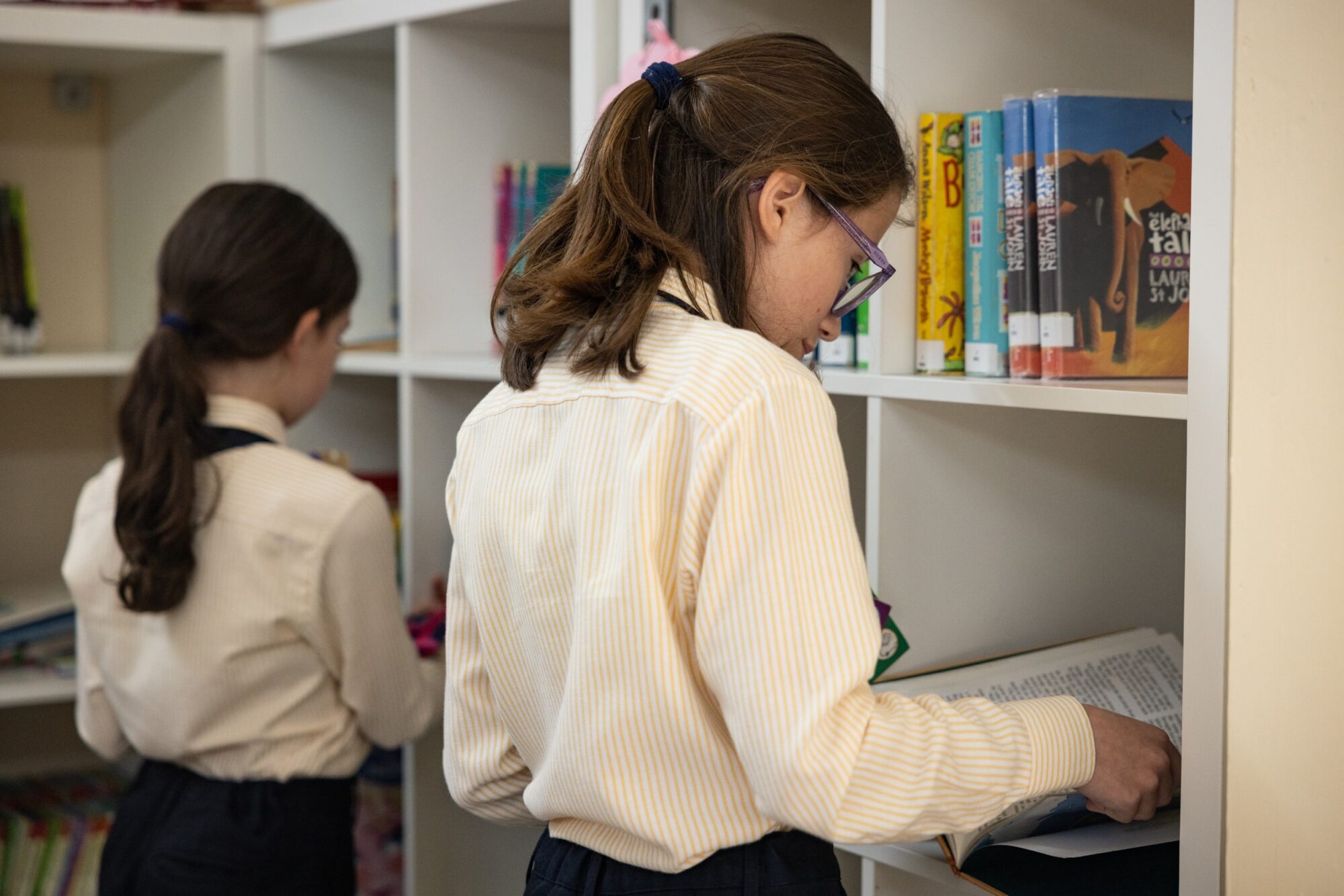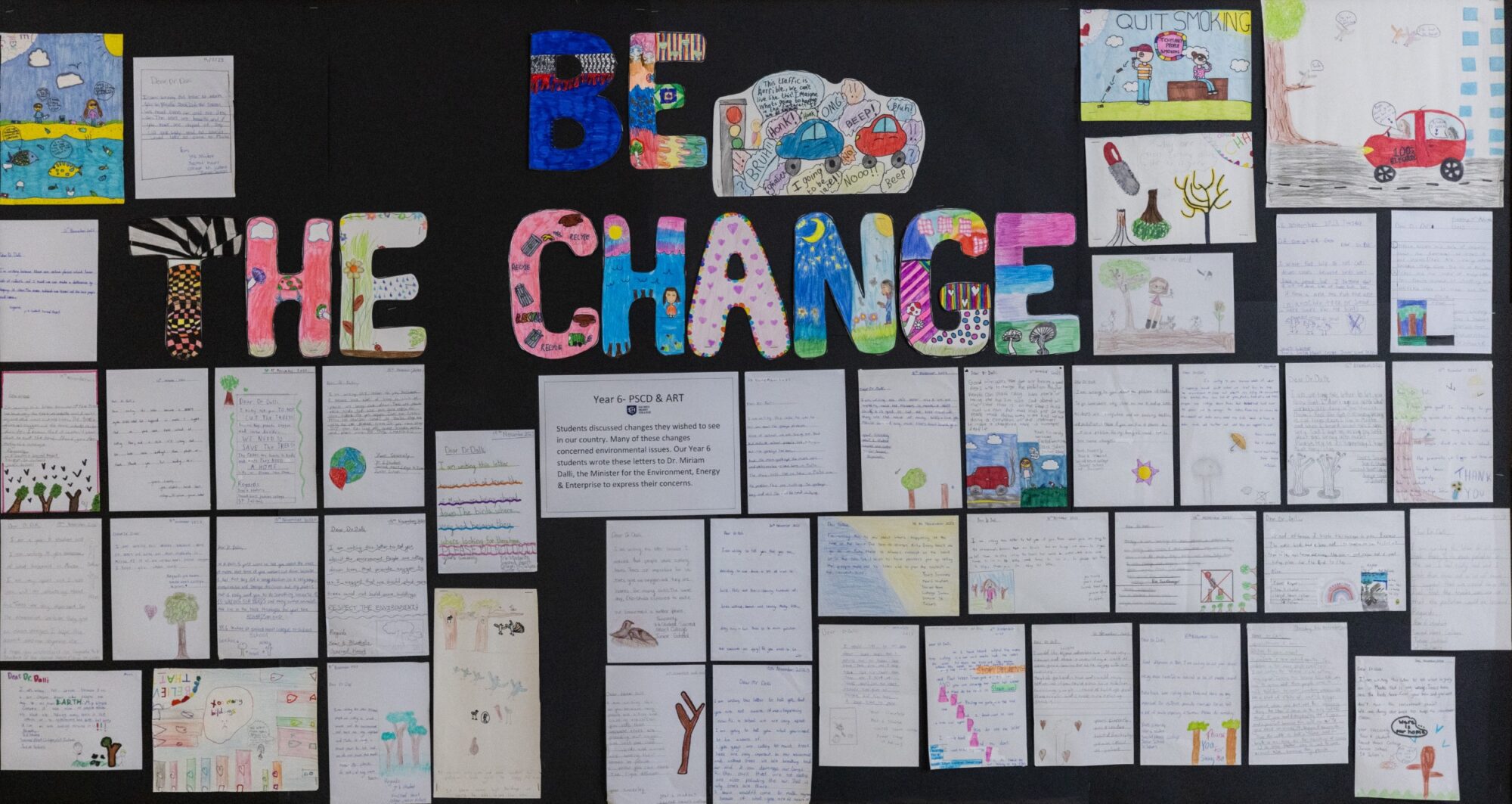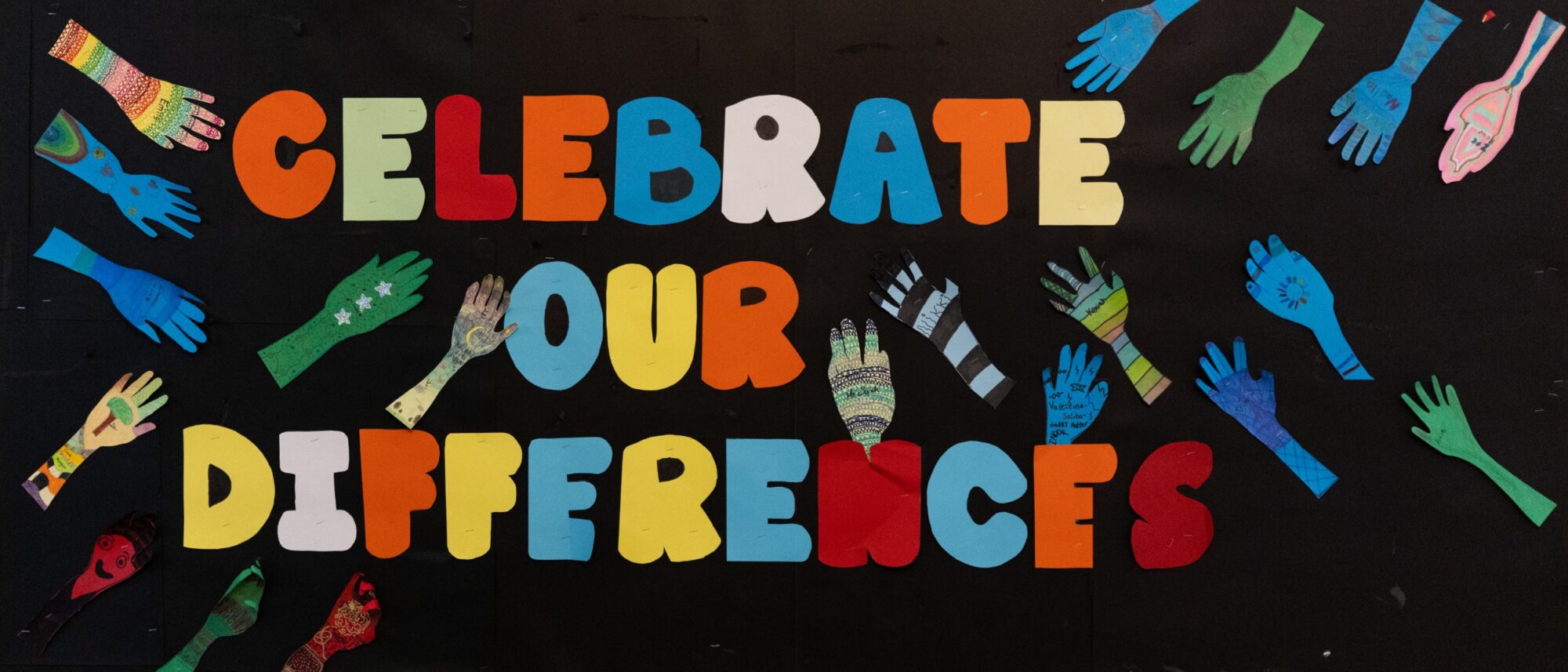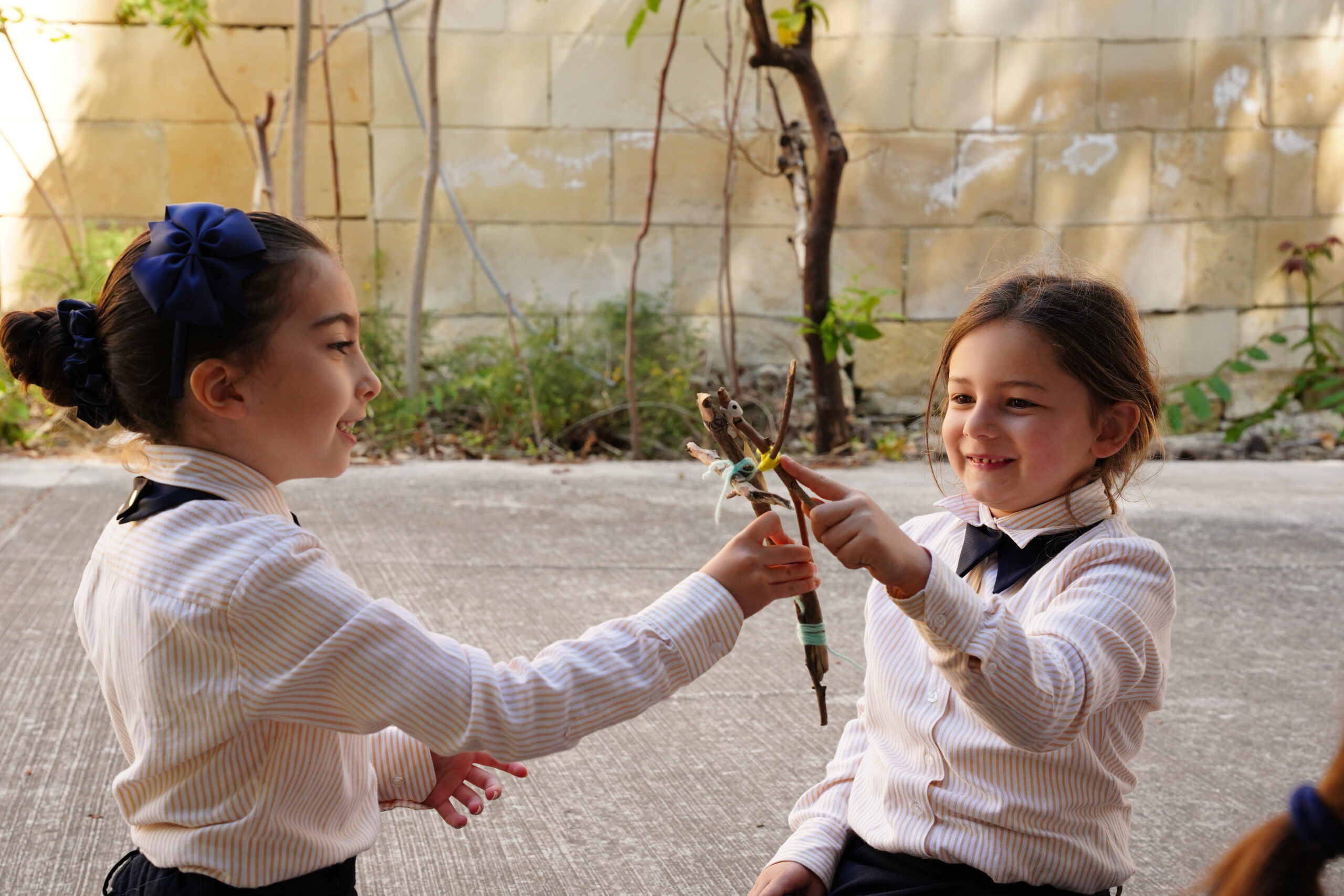
Junior School Curriculum
A Holistic Education
Through a holistic approach, our school focuses on the complete individual by celebrating not only academic achievements but also prioritising their development in other non-academic areas. It ensures that students receive an education that is relevant for life outside school by promoting the active participation of students and by providing them with experiences and opportunities, which require them to develop their intellectual as well as social and communicative skills.
In the Early Years (Years 1 and 2), students follow an inquiry-based approach to learning with emphasis being made on improving their problem-solving and critical thinking skills. This approach supports students as they move on to the Junior Years (Year 3 to Year 6) where schooling is more formal to prepare students for certification and qualification.
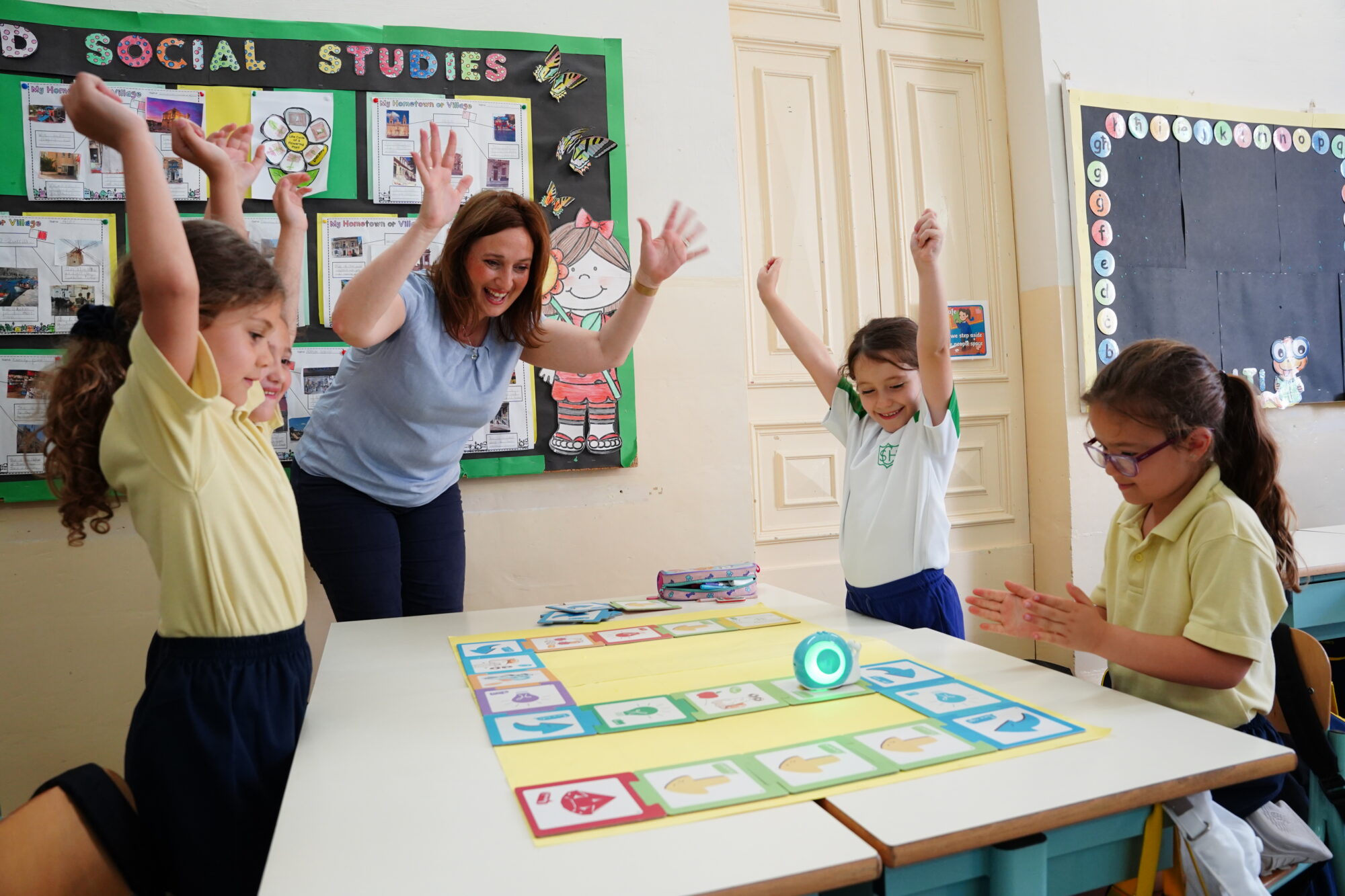
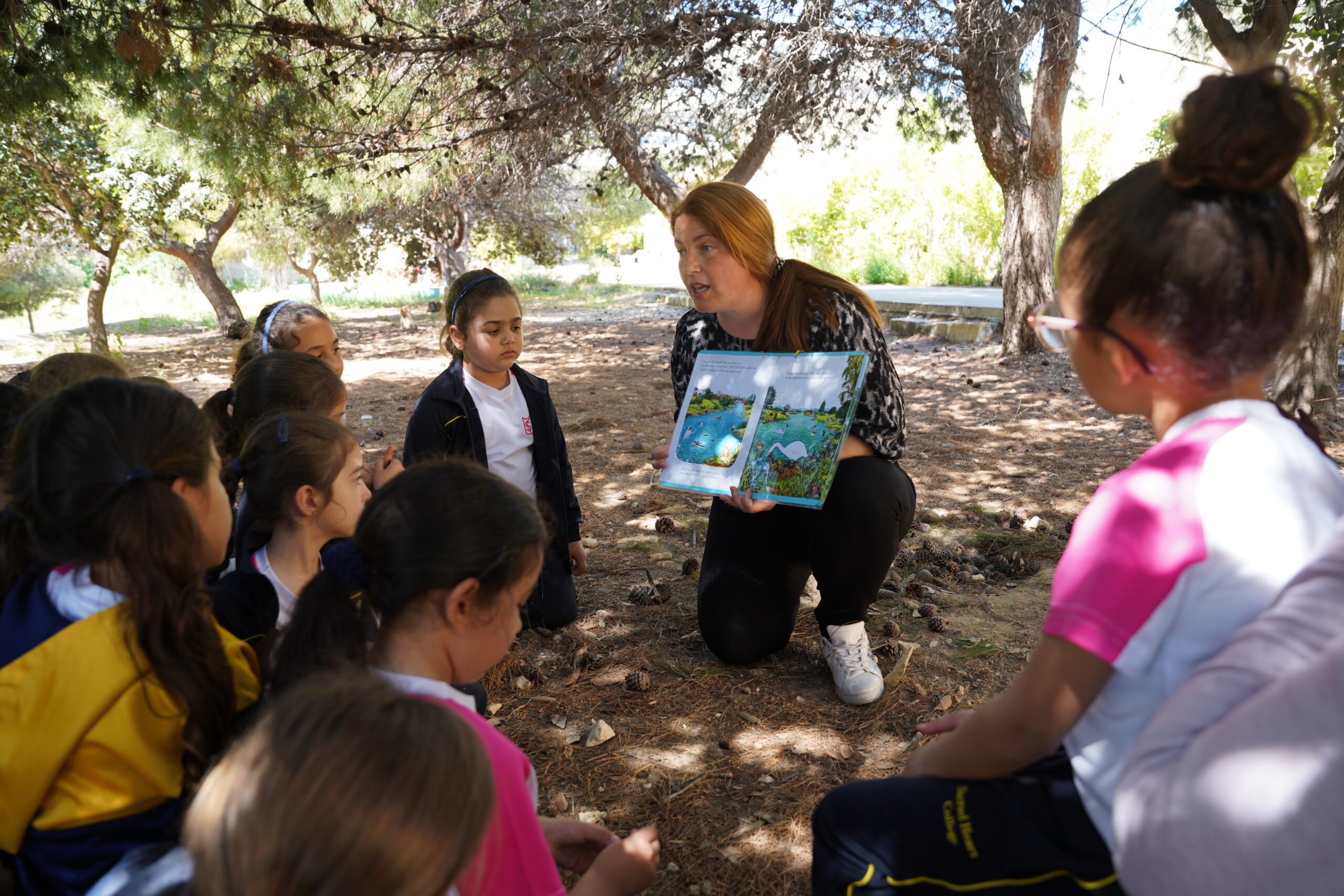
Pedagogy
Year 1 & Year 2
During these two years, also known as the ‘Early Years’, focus is placed on the interactive aspect between the learner, teacher and the learning environment. Pedagogies used in the early years aim on developing each child’s individual interests as they explore their surroundings and learn more about themselves as individuals.
The Emergent Curriculum
This is a child-centred approach to the teaching and learning process where educators plan lessons and activities around the needs and interests of their learners. With this style of teaching, learning is child-initiated, meaningful, hands-on and collaborative. Children have the opportunity to use all their senses, develop their creativity, explore different media as well as engage in critical thinking and problem solving. These are all skills that are highly valued in the 21st century.

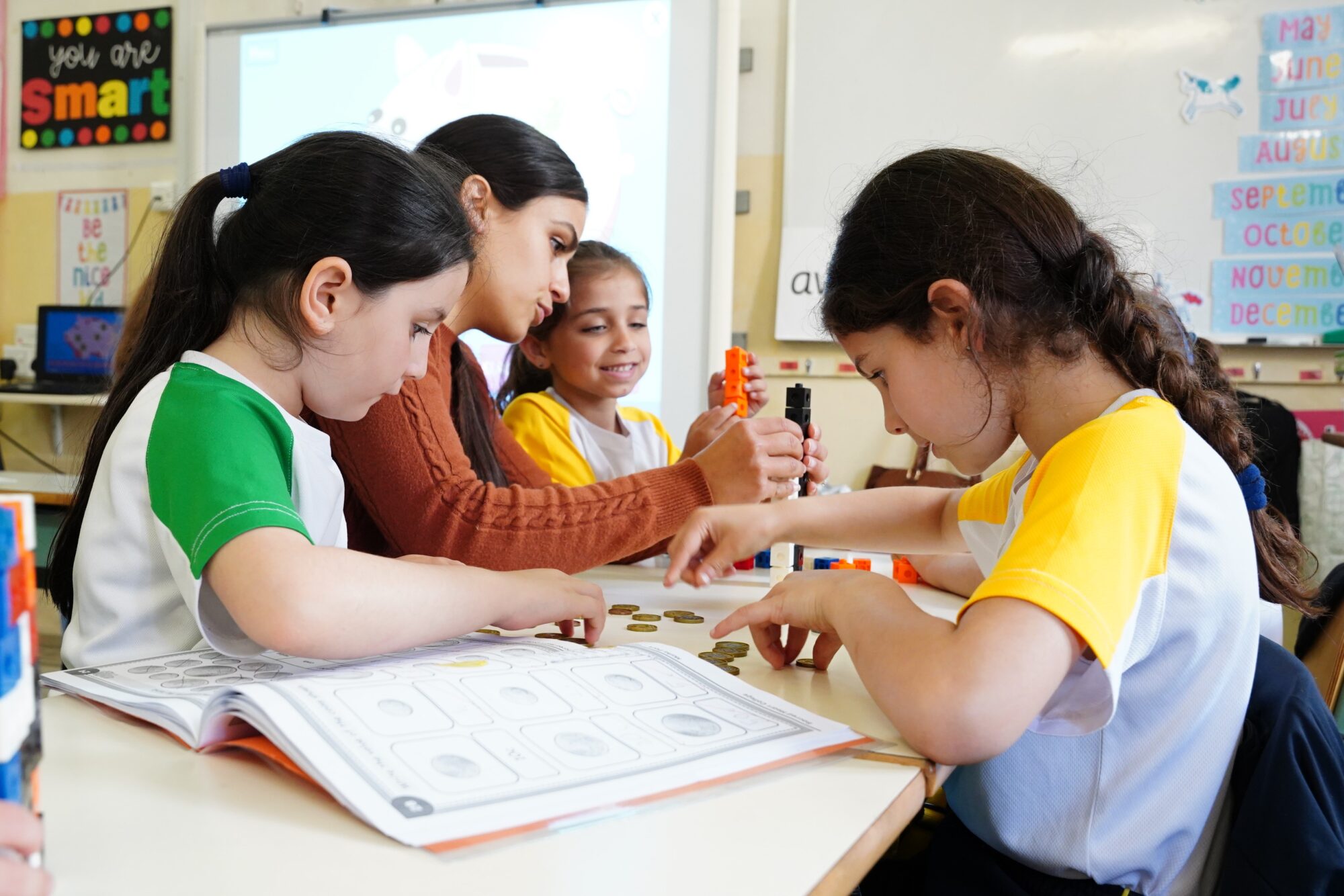
Literacy
The early years follow the READ WRITE INC. literacy programme. This comprehensive programme develops children’s reading, writing, spoken language, vocabulary, grammar and spelling. Through this programme, children learn at their own pace as they are placed into groups which change and adjust according to the needs of the learners as they develop their literacy skills. This programme is continued in Year 3 to help the learners become fluent readers. The aim is to raise literacy standards and spark a lifelong love of reading.
Numeracy
Our school focuses on using the CPA approach to implement the newly issued Learning Outcome Framework. This approach targets the concrete, pictorial and abstract (CPA) in order to ensure that our learners have a deeper understanding of Maths. Lessons are highly hands-on, active experiences where learners use concrete objects such as blocks, cubes and counters, pictures as well as the traditional symbols of =, +, x, ÷ in order to create meaning and connections.
Assessment
In the Early Years assessment is formative with no formal examination or tests taking place. Our educators assess young learners through on-going observation, hands-on tasks, conversation and through their daily interactions. Although it is a priority for our educators to keep parents continually updated with their daughter’s progress, an official report is issued twice a year, in March and June, which gives a complete picture of each child’s achievements.
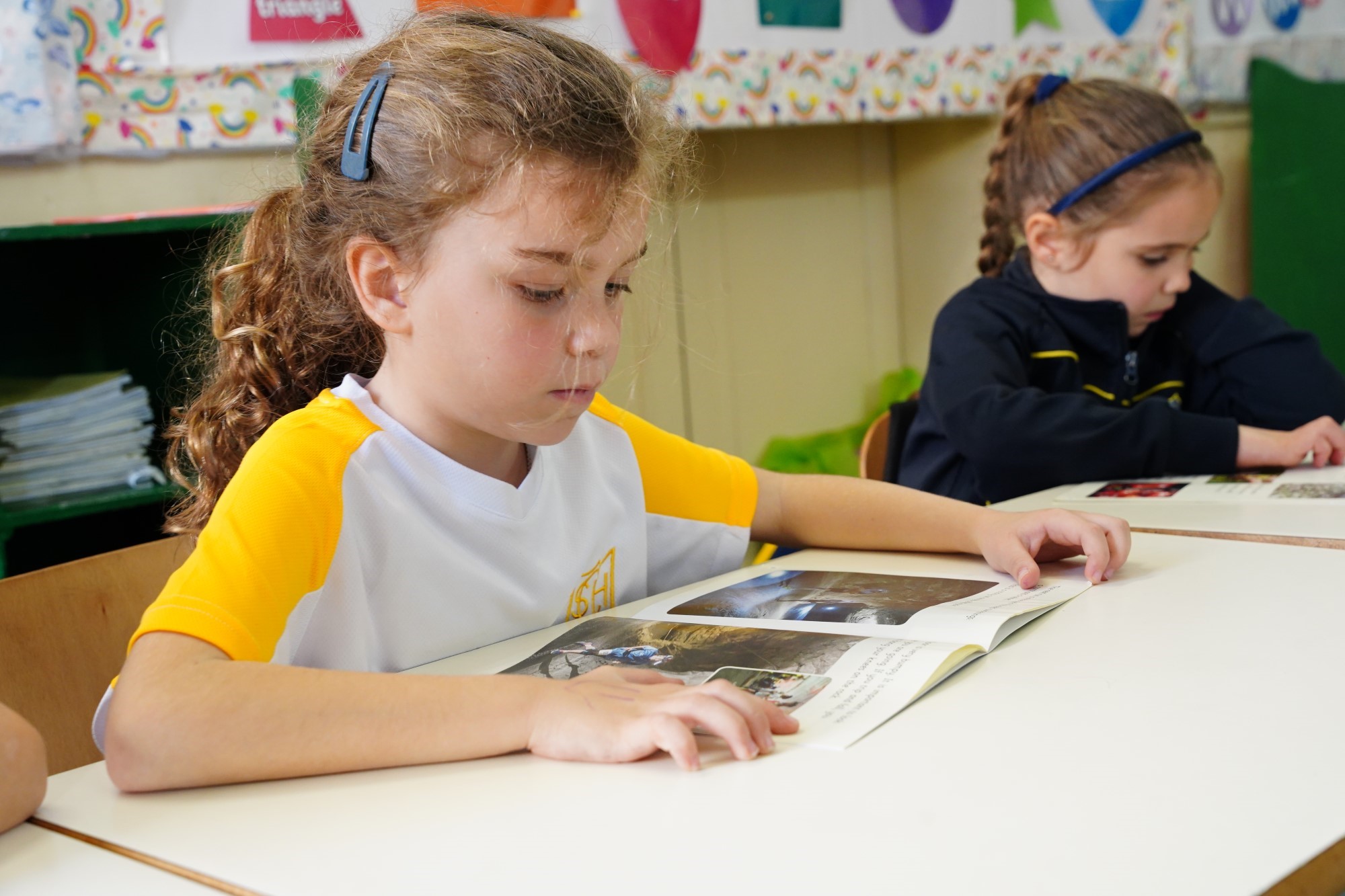
Year 3 – Year 5
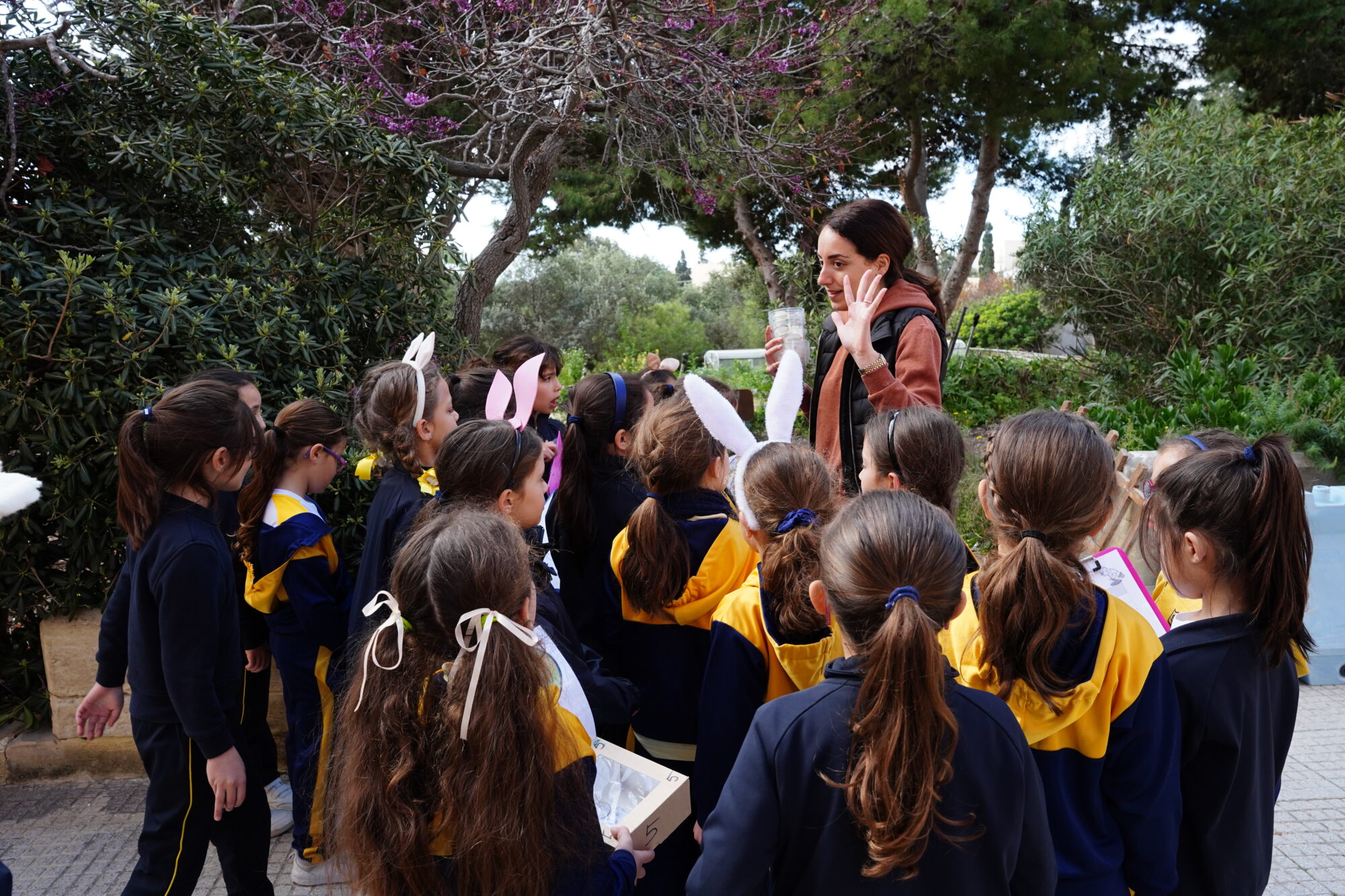
As students enter the Junior Years, the school does its utmost to offer a smooth transition from the Early Years, as learning now becomes more formal and academically oriented. It remains our priority to provide learners with 21st century skills such as problem solving, critical thinking, computational and collaborative skills. This is done through learner-centred lessons/teaching and learning in which the active participation of all students is encouraged.
Literacy and Numeracy continue to follow the foundational principles laid in the early years. A comprehensive approach to language learning (both Maltese and English) is adopted where students are able to develop their writing, oral and listening skills. The CPA approach is also adopted to help students deepen their meaning of more complex Mathematical concepts embedded in real life situations
Assessment
Whilst formative assessment practices remain an important daily practice, the assessment process starts to take a more formal format. In Year 3 students have continuous assessment throughout the year. Continuous assessment also takes place in Year 4 and Year 5. At the end of the scholastic year, Year 4 and Year 5 students also sit for a formal annual examination assessing students in different competencies. Educators prioritize on providing each student with formative, timely feedback in order to help each child achieve their full potential. Official reports are issued around March and June, which provide a comprehensive view of every student’s achievement.
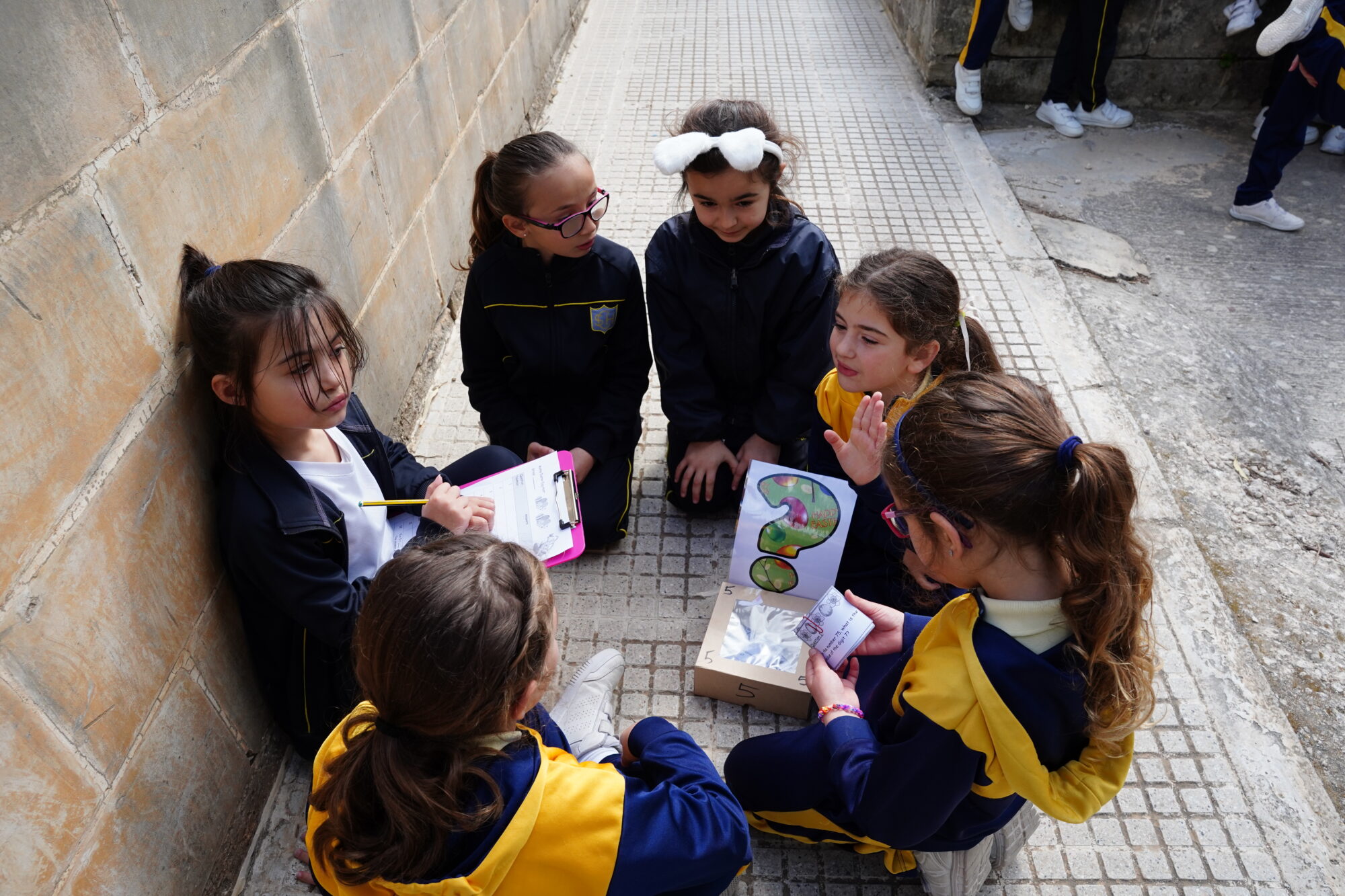
Year 6
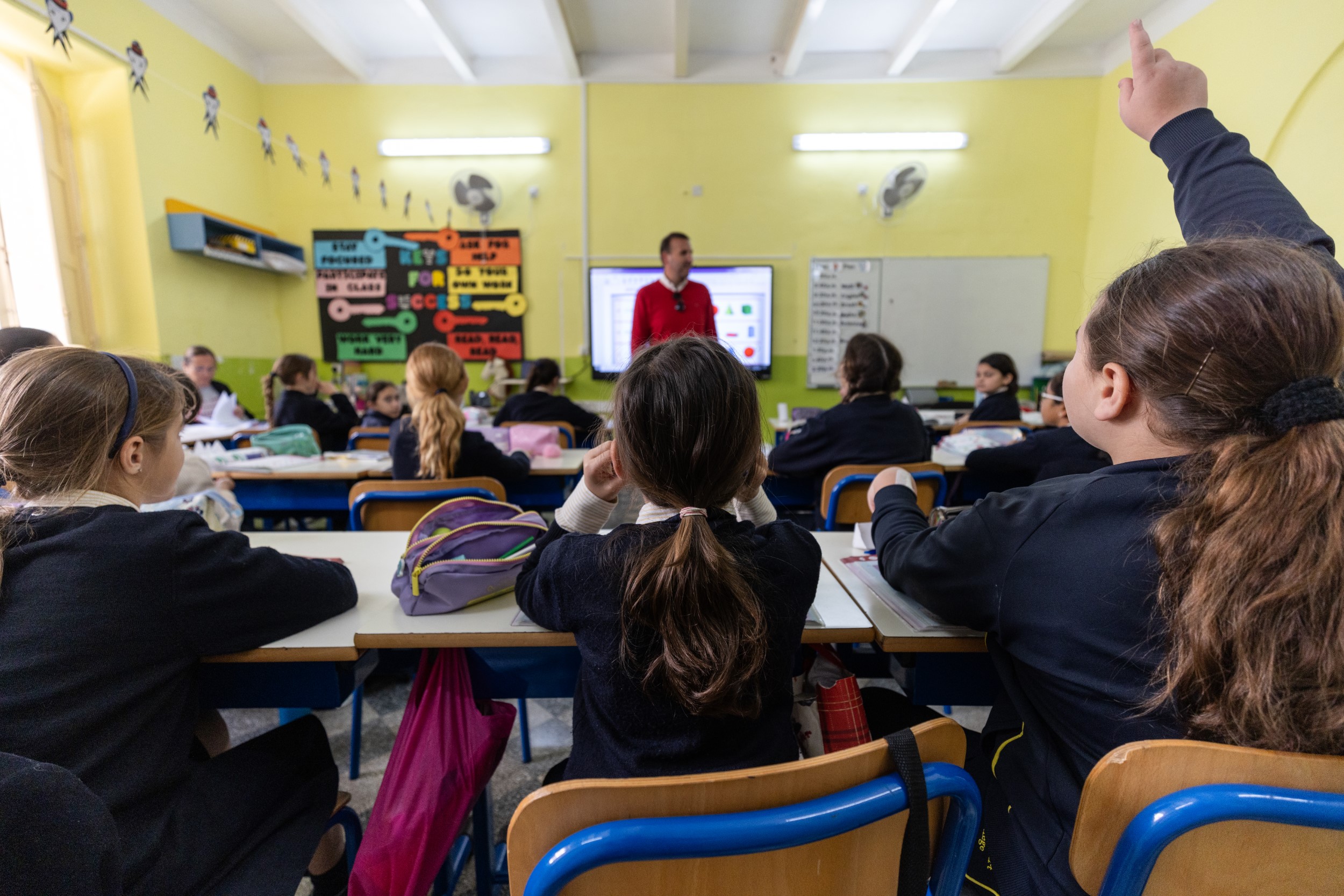
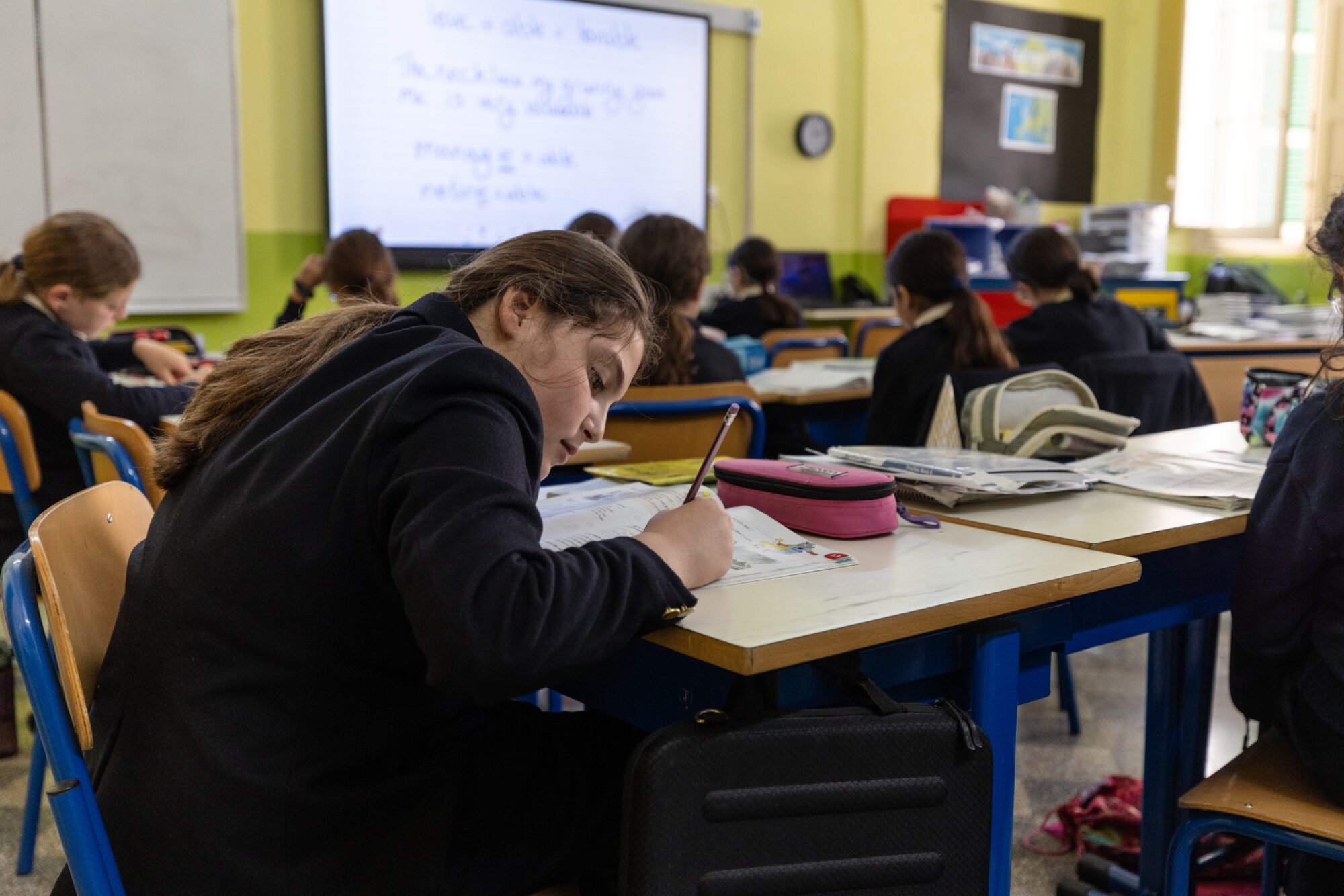
In this crucial last year of primary school, students continue their studies in the core subjects of Mathematics, Maltese, English as well as Social Studies, Religion and Science. Although students still have their main class teacher, the school adopts subject teaching the three main subjects (Mathematics, Maltese and English) in order to allow the students more in-depth exploration of the subjects. Students also benefit from language taster lessons of French, Italian and Spanish in preparation for their choice of subjects in the Senior School. This final year of Primary school is usually celebrated by a Farewell activity at the end of June to which parents are invited to attend.
Assessment
Year 6 students also follow a continuous assessment approach, through which students are assessed via formal means (examinations and tests) and through hands-on activities, projects and presentations. Since the removal of the National Benchmark Exam, students sit for an annual exam in June. Official school reports are issued twice a year around February and June to offer feedback and provide an overview of each student’s achievements in different competencies.
